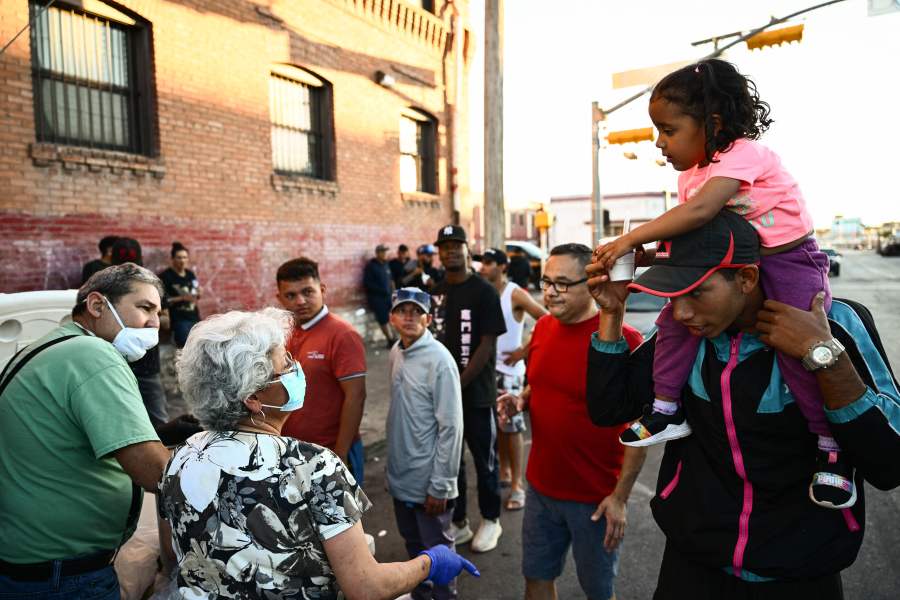EL PASO, Texas (NewsNation) — Local resources in El Paso are already feeling the direct impact of the migrant surge as the city braces for the end of Title 42.
More than 2,000 migrants are sleeping on the city’s streets this week while holding facilities in the El Paso Sector — the busiest sector on the southern border — are over capacity with roughly 4,800 people in custody right now.
Officials said they expect the situation to intensify once the pandemic-era border policy is officially lifted Thursday night.
Border agents in the El Paso Sector have apprehended more than 265,000 migrants since October. That’s about 1,400 apprehensions per day.
The majority of the migrants crossing into El Paso traveled from Venezuela, with their trek to the city just beginning their journey to other major U.S. cities.
El Paso Mayor Oscar Leeser spoke with NewsNation’s Elizabeth Vargas about busing migrants to other cities to decompress local resources in the city.
“They’re not coming to El Paso, they’re coming to the United States. And that’s one of the things that we continue to work and help them,” Leeser said. “When you said we declared a state of emergency, that was to be able to open temporary shelter … so we can help them get to their destination.”
El Paso declared an emergency earlier this month in anticipation of Title 42’s end. The declaration allows the city to open up emergency shelters and use federal funds.
City leaders said they are prepared to use two middle schools as temporary shelters, and if necessary, also the convention center located downtown.
Texas Gov. Greg Abbott has deployed a tactical border force to assist local authorities with the large influx of migrants.
NewsNation spoke with one migrant who described the dangers of living in the border town of Juarez.
“There are a lot of cartels (in Juarez). Many people try to not stay at the border because they fear the cartels. A group with us was attacked, they took their cellphones and money. My friend was almost raped. They undressed her and touched her. Thankfully they did not rape her, but they almost did,” he said.
On Tuesday, federal authorities are set to carry out an enforcement operation, cracking down on migrants skipping immigration processing and crossing into El Paso illegally.








